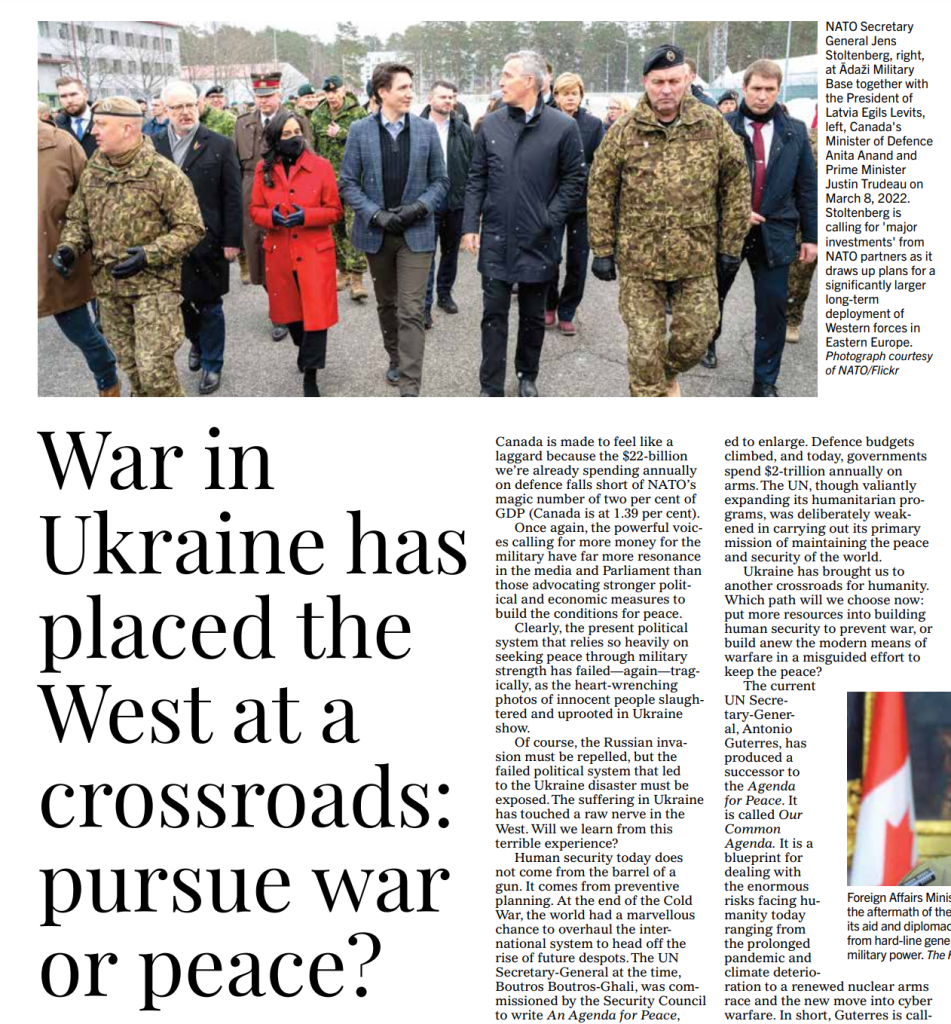
“Following the Trinity nuclear test detonation of 16 th July 1945, nuclear scientist Leó Szilárd observed that, “Almost without exception, all the creative physicists had misgivings about the use of the bomb” and further that “Truman did not understand at all what was involved regarding nuclear weapons”. These days, the movie Oppenheimer has been the rage based on a noteworthy biography of Robert Oppenheimer entitled American Prometheus written by historians Kai Bird and Martin Sherwin. Though the movie spares its viewers the horrors of the atomic bombing of Japan, it does reflect the warnings of the early nuclear weapon scientists about the long-term or permanent dangers of a nuclear arms race and associated risks of further nuclear weapons use. On the other hand, the film overlooks other historical works including A World Destroyed: Hiroshima and its Legacies also by Martin Sherwin, that disputes and negates the US government’s narrative about the necessity of using nuclear weapons twice over civilian targets in Japan and suggests that the decisions were driven mainly by geostrategic and prestige considerations – criteria still in operation today to justify continuing retention of nuclear weapons.”
CNANW Condemns Nuclear Threats; Calls for De-escalation and Total Nuclear Disarmament
Media Release
Canadian Network to Abolish Nuclear Weapons (CNANW) Condemns Nuclear Threats; Calls for De-escalation and Total Nuclear Disarmament.
Ottawa – August 4, 2025 – On the eve of the 80th anniversary of the atomic bombings of the Japanese cities of Hiroshima and Nagasaki on August 6th and 9th 1945 that claimed more than 200,000 lives, a network of 18 prominent Canadian NGOs dedicated to the total elimination of nuclear weapons has condemned recent rhetoric and actions by Russia and the US concerning the possible use of nuclear weapons.
In response to threats by the US to impose stricter sanctions on Russia for failing to end its invasion of Ukraine, former Russian President, Dmitry Medvedev, now Deputy Chairman of the Security Council of the Russian Federation, reminded the US that Russia has significant nuclear strike capabilities. Russian President Putin, Foreign Minister Lavrov and others in the Kremlin have also invoked the spectre of nuclear war on multiple occasions, in particular, should a third party directly engage Russia in defence of Ukraine.
Last Friday, in response, US President Trump said “I ordered two nuclear submarines to be positioned in the appropriate regions, based on the highly provocative statements of the Former President of Russia. Words are very important and can often lead to unintended consequences”.
On behalf of the Canadian Network to Abolish Nuclear Weapons, Chairperson, Earl Turcotte, condemned “this dangerous rhetoric and actions that will increase the already critical level of tension between and among nuclear powers”.
The CNANW believes that the open deployment of “nuclear submarines” by the US to strategic positions vis a vis Russia, will increase fear of a nuclear first strike – an option not ruled out by either nation.
The US and Russia possess approximately 90% of the global nuclear arsenal. The balance, by the U.K., France, China, India, Pakistan, Israel and North Korea.
Scientific modeling has demonstrated that the detonation of even 3% of this total would kill millions immediately and in the weeks and months following. It would also eject enough dirt and smoke into earth’s atmosphere to plunge the planet into a nuclear winter for more than a decade, resulting in widespread famine that could wipe out a third of humanity. A wider nuclear exchange could end life on earth as we know it, if not completely.
The world has lived with the threat of nuclear annihilation for 80 years, yet all nine nuclear powers are engaged in a new nuclear arms race – expanding and ‘modernizing’ their arsenals and introducing new delivery systems that many consider virtually impossible to defeat. The US and Russia have also recently lowered their respective thresholds for the use of nuclear weapons. Add to this the risk of cyber-attack and/or non-state actors acquiring nuclear capability.
The ‘Doomsday Clock’ established by atomic scientists in 1947, is at 89 seconds to midnight, closer to ‘Doomsday’ than at any point in its history.
“This is insanity”, said Turcotte. “We are one miscalculation, accident or deliberate act by a profoundly misguided leader away from nuclear Armageddon.
More than 100 nations have already declared themselves nuclear weapons-free zones. It’s past time for like-minded nations around the world to impel and, if necessary, to compel nuclear armed states to reverse the nuclear arms race and enter into legally binding agreements that will result in the total elimination of nuclear weapons and the establishment of an effective monitoring system to ensure compliance, indefinitely. We did it with chemical and biological weapons. We can and must do it with the ultimate weapon of mass destruction!”
The CNANW urges Canada and NATO to begin to play an international leadership role to this end, and to do so on an urgent basis, as though another nuclear event were imminent. It very well could be.
Ottawa, August 4, 2025
——————————————————————————————————
For additional information, contact Earl Turcotte, Chairperson of the CNANW, at: earl.turcotte[at]gmail.com or by telephone at 613-839-2777
*CNANW Member Organizations
Canadian Coalition for Nuclear Responsibility
Canadian Federation of University Women
Canadian Peace Research Association
Canadian Pugwash Group
Canadian Voice of Women for Peace
Friends for Peacebuilding and Conflict Prevention
Group of 78
Hiroshima – Nagasaki Day Coalition
International Physicians for the Prevention of Nuclear War Canada
Peace Train Canada
Project Ploughshares
Project Save the World
Religions for Peace Canada
Rideau Institute
Science for Peace
United Nations Association in Canada
Women’s International League for Peace and Freedom
World Federalist Movement Canada



